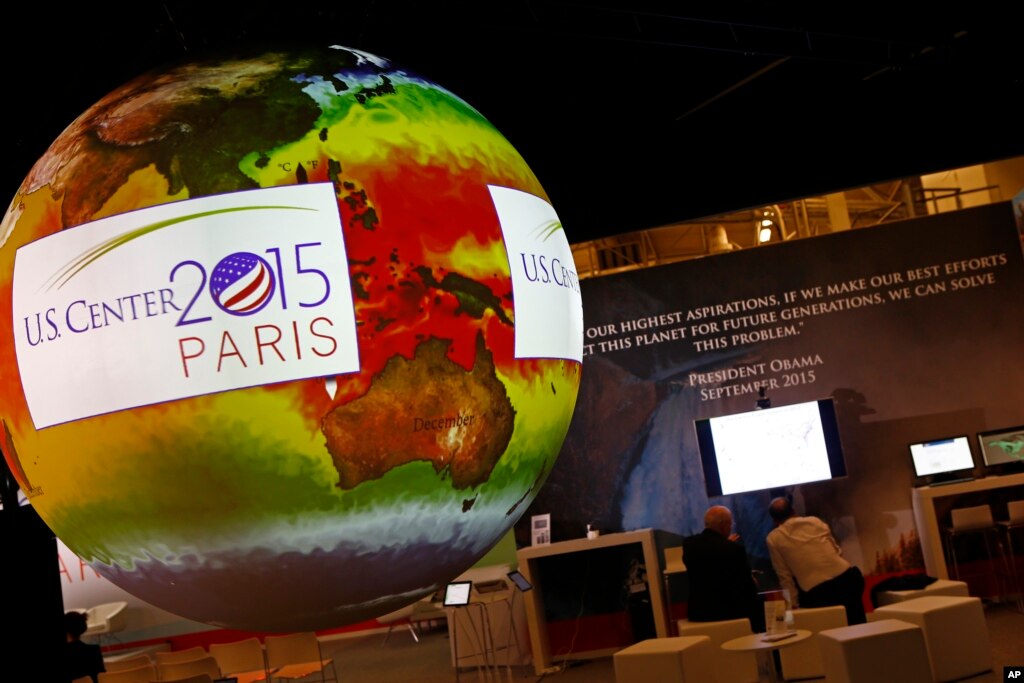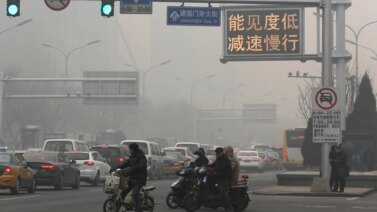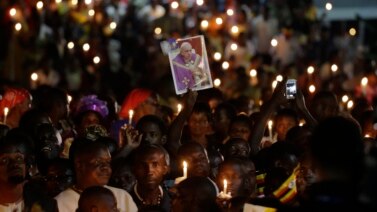
At the United Nations climate change summit in Paris this week, participants talked about natural disasters and how they impact the world’s most vulnerable populations.
The UN says that over the past 30 years, one of every $3 spent on development for countries was lost because of recurring crisis. A total of $3.8 trillion has been lost. It is not just an economic loss these countries suffer from natural disasters, but social and environmental as well.
This affects 217 million people every year.
Oceans and other water resources were the focus of Wednesday’s sessions. The UN warns that failure to manage water resources hurts attempts to reduce poverty and reach goals to sustain resources.
On Tuesday, U.S. President Barack Obama called for some parts of any possible agreement reached to be legally binding. He said he believes that global security depends on decisive actions to slow down global warming.
“This is an economic and security imperitive that we have to tackle now.”
Leaders at the U.N. Climate Summit are working on an agreement to keep global temperatures from rising more than two degrees Celsius above levels of the pre-Industrial Revolution (1760-1840) time.
Obama said he remains optimistic that climate change can be solved, and that world leaders can reach an agreement at the end of two weeks of negotiations in Paris. As he headed back to Washington Tuesday, he said he is “convinced that we are going to get big things done here.”
But, the U.S. president says, there will still be more work to do after that.
“And, by the way, we know that even with an optimistic outcome here in Paris, that we’ll still have more work to do, in order to ultimately achieve the goals that scientists say we need to achieve, to avert catastrophic damage.”
Earlier on Tuesday, the White House announced 73 U.S. companies are pledging support for action on climate change. The goals of the companies are to reduce emissions by up to 50 percent. Other goals include cutting their water usage by 80 percent, and buying 100 percent renewable energy.
U.S. businessman Bill Gates is the founder of the Microsoft computer company. He announced plans to team with 19 governments and 28 billionaires from 10 countries. They will create a multi-billion-dollar public-private group to finance clean and renewable energy research.
The governments involved in Gates’ effort say they pledge to double their spending on clean-energy research over the next five years.
Discussions have also been about helping developing countries fight the effects of climate change. Also Tuesday, French President Francois Holland said France will give African countries $2.1 billion over the next four years.
The money will help countries in Africa develop renewable energy sources and replace fossil fuels. Those are the fuels blamed for climate change.
The U.S., China and India account for about half of the world’s emissions of carbon dioxide. That is the gas that traps heat in the atmosphere, and scientists say it is a leading cause of the rising global temperatures.
While in Paris, Obama met with Chinese President Xi Jinping before the conference opened. The U.S. pledged to cut emissions by 2025, and China set targets to top its emissions by about 2030. President Xi Jinping said the two countries have a common vision of what is needed in an agreement.
The U.S. president also met with India’s Prime Minister Narendra Modi. Obama highlighted India’s work with a group to provide affordable clean energy to developing countries.
I'm Anne Ball
Aru Pande reported on this story for VOANews.com. Anne Ball adapted this story for Learning English. Kathleen Struck was the editor.
We want to hear from you. Write to us in the Comments section or on our Facebook page.
Words in This Story
vulnerable – adj. easily hurt or harmed
legally binding – adj. enforceable by law
optimistic – adj. hopeful and confident about the future
achieve – v. reach or get something by effort or skill
avert catastrophic damage – phrase. to avoid a terrible disaster and damage
pledge – n. promise or agreement
emission (s) – n. act of producing or sending out energy or gas
renewable energy – n. sustainable energy that comes from the natural environment

